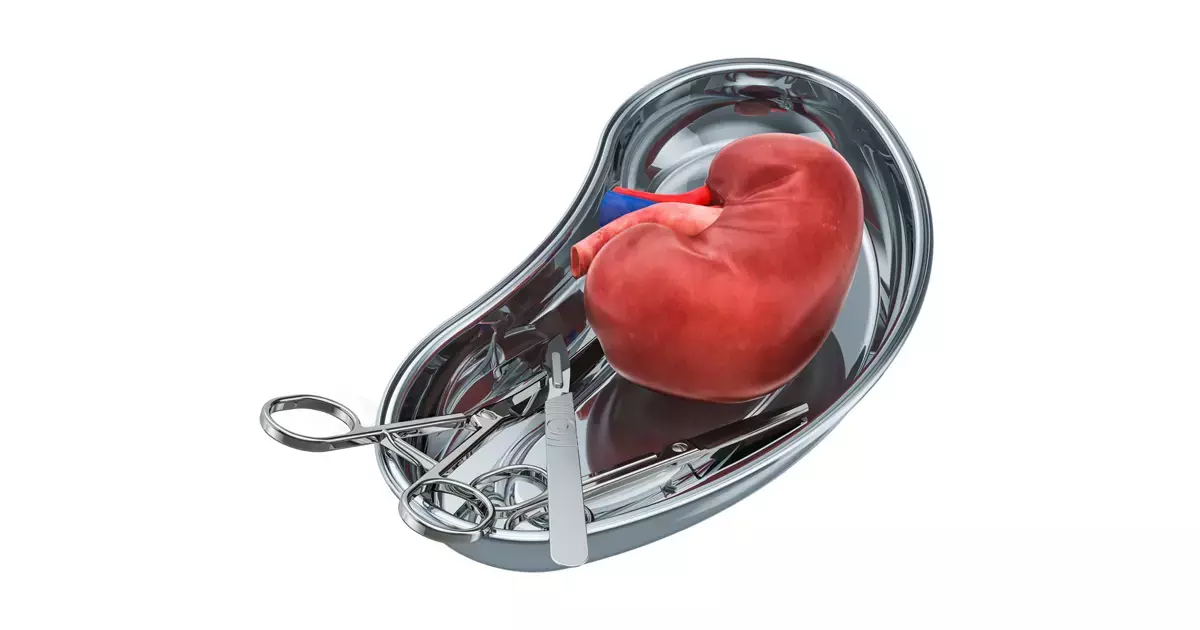- Home
- Medical news & Guidelines
- Anesthesiology
- Cardiology and CTVS
- Critical Care
- Dentistry
- Dermatology
- Diabetes and Endocrinology
- ENT
- Gastroenterology
- Medicine
- Nephrology
- Neurology
- Obstretics-Gynaecology
- Oncology
- Ophthalmology
- Orthopaedics
- Pediatrics-Neonatology
- Psychiatry
- Pulmonology
- Radiology
- Surgery
- Urology
- Laboratory Medicine
- Diet
- Nursing
- Paramedical
- Physiotherapy
- Health news
- Fact Check
- Bone Health Fact Check
- Brain Health Fact Check
- Cancer Related Fact Check
- Child Care Fact Check
- Dental and oral health fact check
- Diabetes and metabolic health fact check
- Diet and Nutrition Fact Check
- Eye and ENT Care Fact Check
- Fitness fact check
- Gut health fact check
- Heart health fact check
- Kidney health fact check
- Medical education fact check
- Men's health fact check
- Respiratory fact check
- Skin and hair care fact check
- Vaccine and Immunization fact check
- Women's health fact check
- AYUSH
- State News
- Andaman and Nicobar Islands
- Andhra Pradesh
- Arunachal Pradesh
- Assam
- Bihar
- Chandigarh
- Chattisgarh
- Dadra and Nagar Haveli
- Daman and Diu
- Delhi
- Goa
- Gujarat
- Haryana
- Himachal Pradesh
- Jammu & Kashmir
- Jharkhand
- Karnataka
- Kerala
- Ladakh
- Lakshadweep
- Madhya Pradesh
- Maharashtra
- Manipur
- Meghalaya
- Mizoram
- Nagaland
- Odisha
- Puducherry
- Punjab
- Rajasthan
- Sikkim
- Tamil Nadu
- Telangana
- Tripura
- Uttar Pradesh
- Uttrakhand
- West Bengal
- Medical Education
- Industry
Kidney transplants from deceased donors previously on dialysis increase risk of delayed graft function: JAMA

In a recent study published in the Journal of American Medical Association illuminated the outcomes for kidney transplant recipients whose donors had undergone dialysis before donating. This comprehensive analysis compared the results of transplant recipients who received kidneys from deceased donors who had dialysis with those donors who did not undergo dialysis.
Kidneys from deceased donors previously on dialysis may be tied delayed graft function
This retrospective cohort analysis drew data from 58 U.S. organ procurement organizations. This spanned from 2010 to 2018 and included a total of 805 deceased kidney donors who had received dialysis prior to their donation. These donors were meticulously matched with an equal number of deceased donors who had not undergone dialysis using a sophisticated rank-based distance matrix algorithm. The study ultimately evaluated close to 1,944 kidney transplant recipients.
The research focused on four main outcomes which were the delayed graft function, all-cause graft failure, death-censored graft failure and recipient death. The key findings highlighted marked differences between the two groups.
The most significant finding was the higher incidence of delayed graft function among the recipients of kidneys from donors who had undergone dialysis. Also, 59.2% of these recipients underwent delayed graft function when compared to just 24.6% of recipients from donors who had not received dialysis. The adjusted odds ratio for this outcome was 4.17 which indicated a substantially increased risk.
When it came to longer-term outcomes such as graft failure and recipient death, the differences were not statistically significant. The incidence rates for all-cause graft failure were similar between the two groups with 43.1 events per 1,000 person-years for recipients of kidneys from dialysis-experienced donors and 46.9 events per 1,000 person-years for the control group. The adjusted hazard ratio was 0.90 by suggesting no significant difference.
Death-censored graft failure rates were also comparable with 22.5 events per 1,000 person-years in the dialysis group and 20.6 in the non-dialysis group. The adjusted hazard ratio was 1.18 which again indicated no significant difference. For recipient death, the rates were 24.6 per 1,000 person-years in the dialysis group against 30.8 in the non-dialysis group with an adjusted hazard ratio of 0.76 by showing no significant difference in mortality.
The outcomes found that while receiving a kidney from a deceased donor who underwent dialysis before donation is associated with a higher risk of delayed graft function, it does not significantly impact longer-term outcomes such as graft failure or recipient death. This finding is pivotal as it highlights the importance of considering the dialysis history of donors while also reassuring them about the long-term viability of these kidneys.
Reference:
Wen, Y., Mansour, S. G., Srialluri, N., Hu, D., Thiessen Philbrook, H., Hall, I. E., Doshi, M. D., Mohan, S., Reese, P. P., & Parikh, C. R. (2024). Kidney Transplant Outcomes From Deceased Donors Who Received Dialysis. In JAMA. American Medical Association (AMA). https://doi.org/10.1001/jama.2024.8469
Neuroscience Masters graduate
Jacinthlyn Sylvia, a Neuroscience Master's graduate from Chennai has worked extensively in deciphering the neurobiology of cognition and motor control in aging. She also has spread-out exposure to Neurosurgery from her Bachelor’s. She is currently involved in active Neuro-Oncology research. She is an upcoming neuroscientist with a fiery passion for writing. Her news cover at Medical Dialogues feature recent discoveries and updates from the healthcare and biomedical research fields. She can be reached at editorial@medicaldialogues.in
Dr Kamal Kant Kohli-MBBS, DTCD- a chest specialist with more than 30 years of practice and a flair for writing clinical articles, Dr Kamal Kant Kohli joined Medical Dialogues as a Chief Editor of Medical News. Besides writing articles, as an editor, he proofreads and verifies all the medical content published on Medical Dialogues including those coming from journals, studies,medical conferences,guidelines etc. Email: drkohli@medicaldialogues.in. Contact no. 011-43720751


